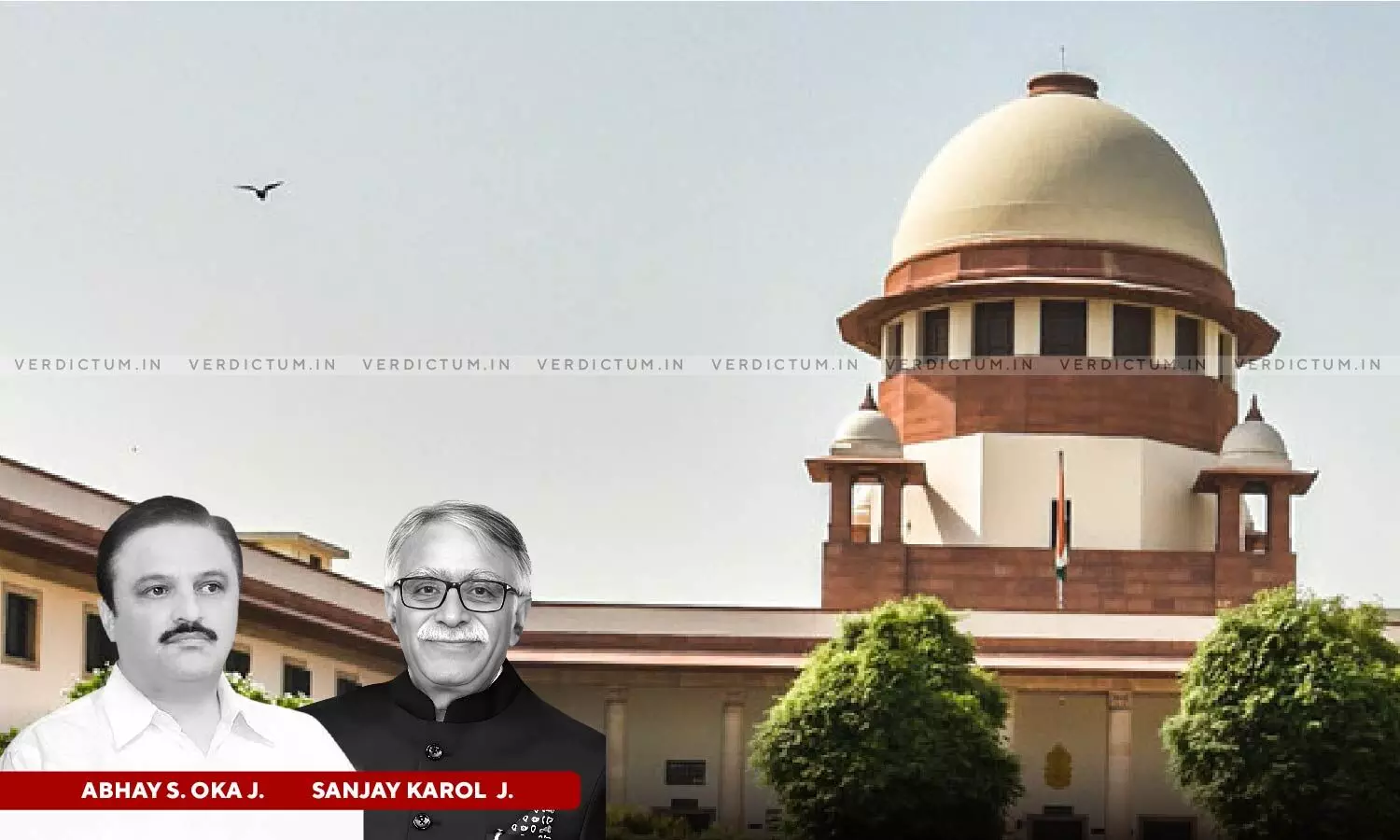
Court Of Appeal Should Be Circumspect In Overturning A Judgment Of Acquittal: Supreme Court
 |
|The Supreme Court observed that a Court of Appeal should be circumspect in overturning its judgment of acquittal.
In this case, six appellants (accused) filed an appeal against the judgment passed by the Karnataka High Court that had convicted them by reversing the acquittal recorded by the Trial Court.
The two-Judge Bench comprising Justice Abhay S. Oka and Justice Sanjay Karol held, “Having allowed the appeals as above, we are constrained to observe that the Criminal Appeal u/s 378 Code of Criminal Procedure, 1973 the High Court has not appreciated the severity of the allegations involved to the full extent. That a Court of Appeal should be circumspect in overturning its judgment of acquittal, is not a principle that requires reiteration. It has been held time and again that an acquittal will only be overturned in the presence of very compelling reasons. Further, right from the Privy Council onwards, it is been held that the presumption of innocence in favour of the accused is bolstered if the trial court hands down an acquittal.”
M/s. Lawyer S Knit & Co. represented the appellants/accused while Advocate V. N. Raghupathy represented the respondent/State.
Factual Background -
The prosecution case against the accused was: In 1997, the deceased and his brothers had gone to the fields to work when, allegedly, all the accused persons armed with weapons such as clubs, iron rods and choppers came and threatened them. The brothers managed to escape but while the deceased, was attempting to do so, he was grievously assaulted by means of iron rod and a steel-edged weapon (chopper). Immediate medical treatment was administered to the deceased at the hospital and consequently, an FIR was registered under several penal provisions.
After investigation, the challan was filed and the case was committed to the Court of Additional Sessions Judge-Presiding Officer, Fast Track Court-II, Kolar. All the accused persons denied the charges under Section 120B, 143, 447, 302 read with Section 149 IPC and claimed trial. The accused Nos. 6 and 8 died and therefore, the proceedings against them stood abated. The Trial Court acquitted all the accused persons. The State, aggrieved by the acquittals, appealed to the High Court, whereby the appeal was partly allowed. The appellants (6 accused) were convicted for having committed an offence punishable under Sections 143, 144, 146, 147, 148, 447, 324, 326, 504, and 506 read with Section 149 of IPC and each one of them was sentenced to undergo rigorous imprisonment for a period of 4 years and pay a fine of Rs. 5000/- each.
The Supreme Court in view of the facts and circumstances of the case noted, “As reflected from record, and in particular the testimony of PW-15 it is clear that the discoveries (stick as shown by A10, for instance) was a eucalyptus stick, found from the eucalyptus plantation, which indisputably, is a public place and was found a week later. A second and third stick purportedly found half kilometre away on that day itself, was found by a bush, once again, a place of public access. Two further sticks recovered at the instance A6 and A7, were also from public places. An iron chain produced from the house of A1 and A2, is not free from the possibility that any of the other occupants of their house were not responsible for it.”
The Court further observed that the dying declaration, although undoubtedly a substantive piece of evidence upon which reliance can be placed, is rendered nugatory as the person who took down such declaration was not examined, nor did the police officer endorse the said document with details of who took down the declaration. The Bench said that sticks, whether bamboo or otherwise, are commonplace objects in village life, and therefore, such objects, being hardly out of the ordinary, and that too discovered in places of public access, cannot be used to place the gauntlet of guilt on the accused persons.
“The circumstantial evidence present on record does not point to the hypothesis of the guilt of the accused persons … The observations of the trial court along with the principle of a bolstered principle of innocence, were summarily cast aside. The same cannot be said to be in accordance with the law”, concluded the Court.
Accordingly, the Apex Court allowed the appeal, set aside the judgment of conviction, and restored the judgment of the Trial Court.
Cause Title- Manjunath & Ors. v. State of Karnataka (Neutral Citation: 2023 INSC 978)